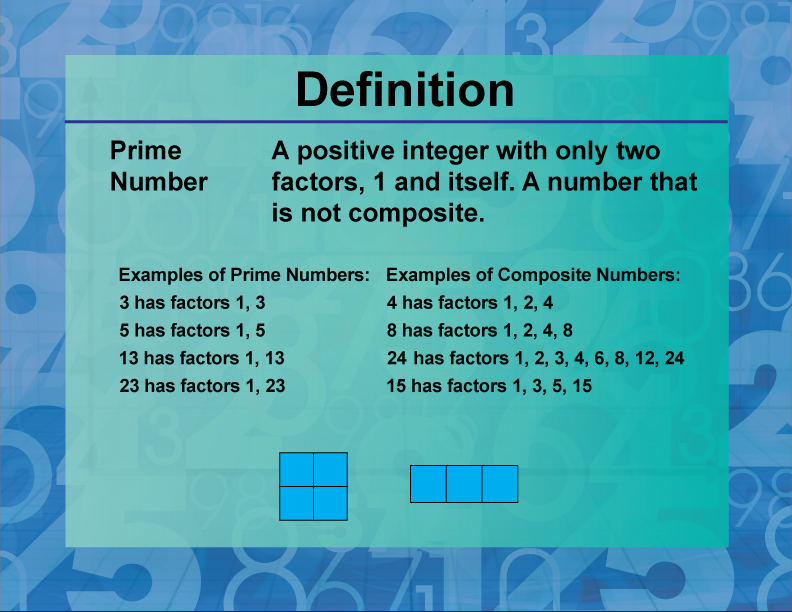 | OverviewThe collection of definitions on prime and composite numbers from Media4Math provides a comprehensive glossary essential for understanding fundamental concepts in number theory. This resource includes key terms such as prime number, defined as a natural number greater than 1 that has no positive divisors other than 1 and itself, and composite number, which is a natural number greater than 1 that has more than two distinct positive divisors. Additionally, the collection explains related terms like factor, which refers to a number that divides another number without leaving a remainder, and prime factorization, the process of breaking down a composite number into a product of prime numbers. This glossary is crucial for students as it lays the groundwork for more advanced mathematical topics. Understanding the distinction between prime and composite numbers aids in mastering concepts such as greatest common divisors, least common multiples, and simplifying fractions. By familiarizing themselves with these definitions, students can enhance their problem-solving skills and develop a deeper appreciation for the structure and properties of numbers. This collection serves as an invaluable reference, supporting both classroom learning and independent study. |
